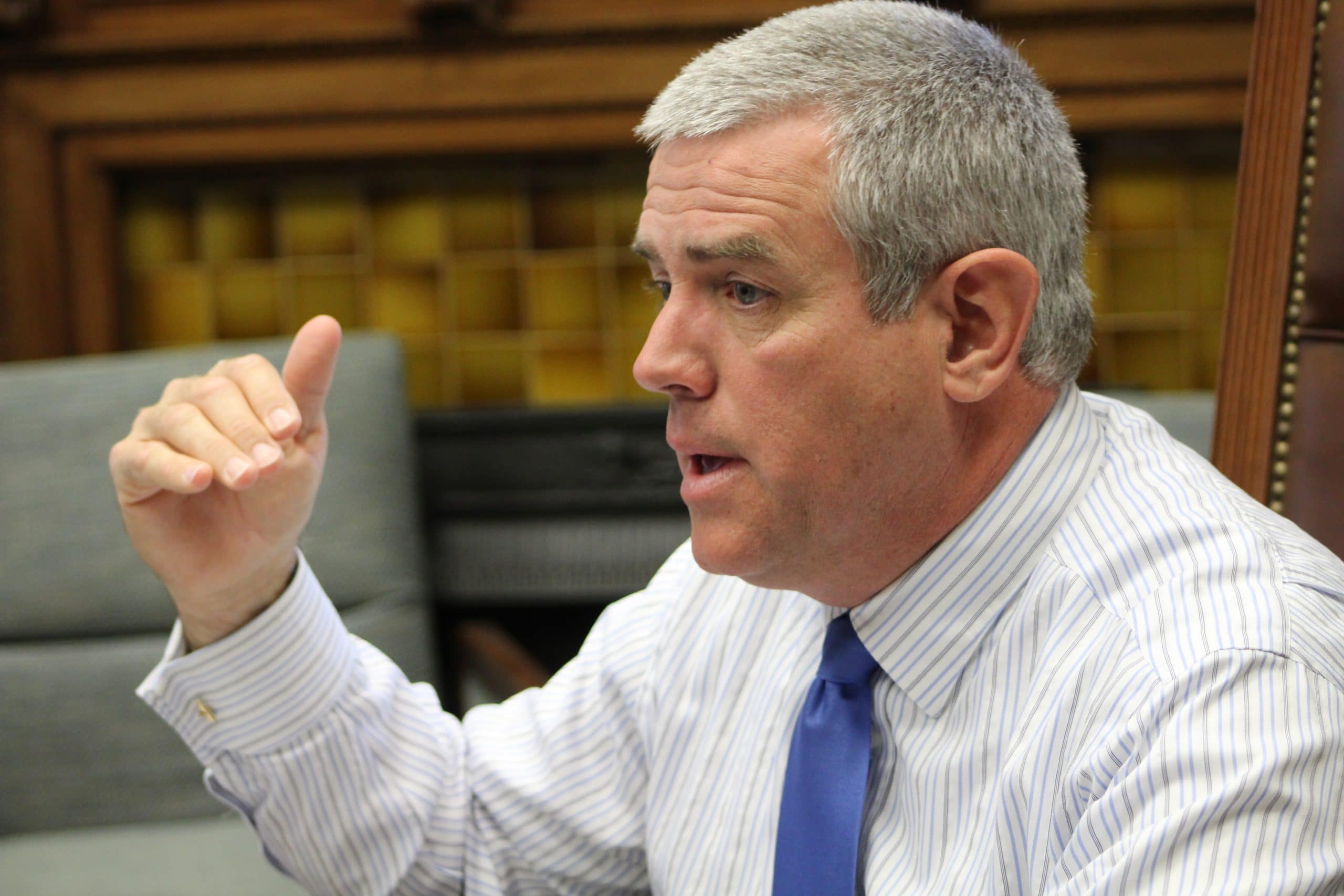Earlier this week, Governor Bryant declared a state of emergency and effectively shut down over 100 bridges throughout the state Mississippi. Today, Speaker of the House Philip Gunn held a meeting to discuss the future of the state’s infrastructure, and a potential solution to the situation at hand.
Lawmakers adjourned from the 2018 legislative session before Easter without passing a long-term plan for funding roads and bridges, but Gunn says that leaders have continued to work toward a solution. Gunn has submitted a bill to the Governor for consideration and hopes to negotiate with the Senate to pass a plan for compressive infrastructure funding. The plan introduced by Gunn is in its early stages, but it centers around the increase in the gas tax and eliminates the 4% income tax bracket in Mississippi.
The gas tax would go up 8 cents at the conclusion of a 4-year phase-in period with the tax increasing by 2 cents each year, for the next four years. While it sounds like an increase in taxes, Gunn says that the elimination of the 4% income tax bracket, would essentially be a “swap” with the gas tax. The 4% would be decreased by 1% each year. The funds gained from the tax would then be put toward roads and bridges. The Speaker also noted that water and sewage would also be included in this bill.
According to Gunn, use-taxes currently generate $315 million in the state, and about 1/3 of those funds would be diverted to infrastructure funding. Gunn noted that the funds would be disturbed as follows: $47 million to cities, $47 million to counties and $16 million to the Local System Bridge Program.
The bill would provide $175 million for a “continuous stream of money” at full phase-in, according to Gunn. He stated that the phase-out of the income tax and the increase in the gas tax would result in no net increase in taxes on Mississippians.
“We think this is a great policy solution to solving our road and bridge issue. It takes money from existing dollars, there is no tax increase here,” Gunn said.
In a tweet, state Senator David Blount (D) says that this plan would only cost the state more money.
“Eliminating 4% bracket will cost more than $3 billion over the next 20 years,” Blount tweeted.
Gunn referenced a budget meeting that lawmakers had with the Tax Foundation in year’s past, and recalled that one woman, Nicole Keating, and others said that the use-tax is a better system for the state.
“You want to have a tax structure based upon use-tax, not income tax. In their opinion, that is a better tax,” Gunn explained. “That’s exactly what the tax swap does; it eliminates the income tax, which she said is a poor tax on which to base your economy and moving it to a user tax i.e. those who buy gasoline and use the roads.”
The bill will be presented to the Governor, and Lt. Governor Tate Reeves. Gunn says that the bill is a “starting point” as they hope to agree on a permanent solution to funding the state’s infrastructure. During today’s meeting, Gunn emphasized the importance of finding a solution and fulfilling their duty as lawmakers to Mississippi residents.
“This money belongs to the citizens. These are citizens dollars. They expect us to use them for the things that matter to the citizens; roads [are] one of those things,” Gunn said.
A special session could be called to address the issue, but the Governor would most likely wait until an agreement is reached by the two chambers before doing so.
The 106 bridges closed as a result of the Governor’s proclamation will remain closed until they meet federal and state laws, regulations and standards. Mississippi was in danger of losing federal funds if the bridges remained open, according to the Governor.
“These bridges have been deemed unsafe for the traveling public,” Governor Bryant said. “Keeping them open constitutes an unnecessary risk to public safety, violates the corrective action plan agreed upon by the state and federal government and jeopardizes federal infrastructure funds Mississippi receives.”
The bridges slated for immediate closure are in Amite, Carroll, Clarke, Greene, Hinds, Humphreys, Itawamba, Jasper, Jones, Lauderdale, Leake, Lincoln, Newton, Pike, Smith and Wayne counties. The proclamation also applies to bridges that are found to be deficient in the future.
A full list of the closed bridges has been made available by the Office of State Aid Road Construction. To view the list – click here.
Governor Bryant said the legislature did put $50 million into a bond package to repair bridges, but that doesn’t go into effect until July 1st.




